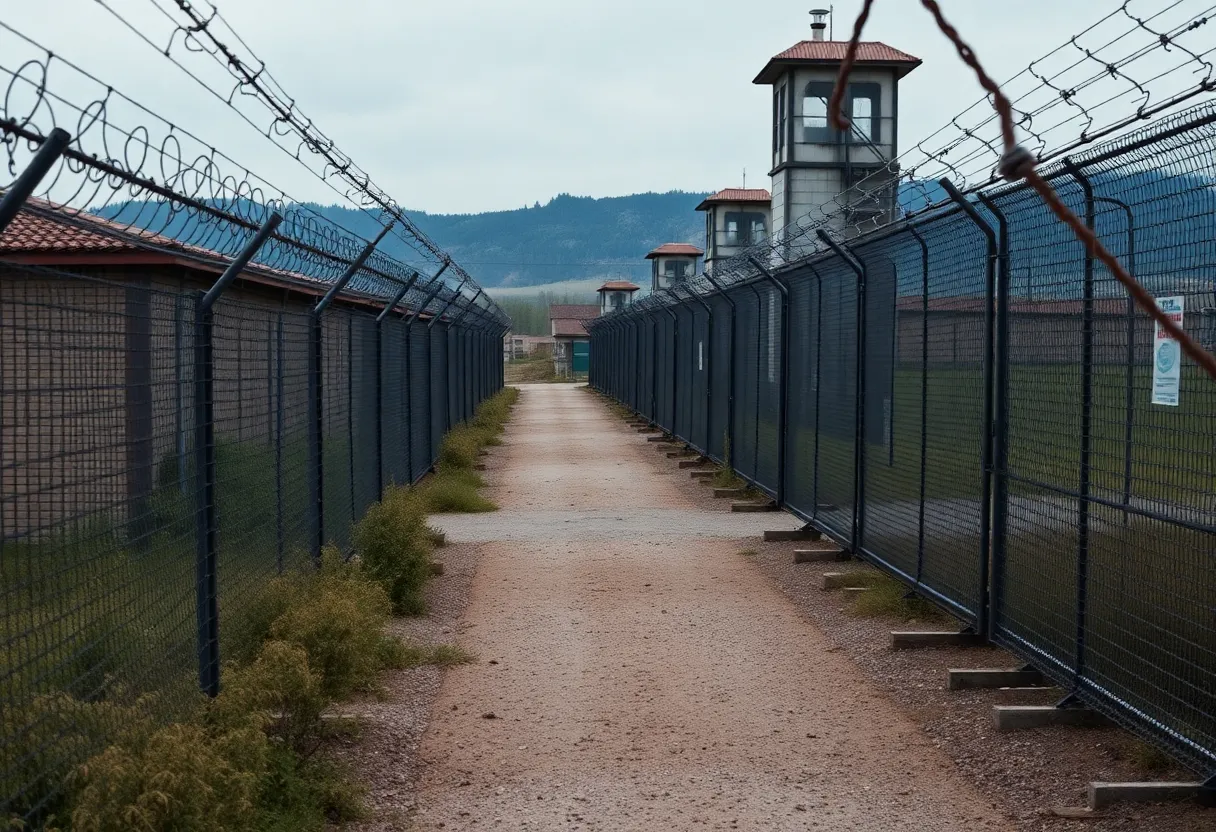News Summary
Camp J in Louisiana has reopened as an immigration detention center to address overcrowding issues in the state’s prison system. Governor Jeff Landry’s emergency declaration and renovation of the facility raise concerns over inmate treatment and ethical implications. This controversial decision merges civil immigration detention with the prison system, drawing scrutiny from advocates who fear longstanding issues in the state’s detention facilities will continue. The facility, now called Camp 57, has a capacity of over 400 detainees, igniting debates about the intersection of criminal justice and immigration policy.
Baton Rouge, Louisiana – Louisiana has reopened the infamous Camp J as an immigration detention center amidst an ongoing debate over overcrowding and brutality issues in the state’s prison system. Governor Jeff Landry declared a state of emergency as the Louisiana State Penitentiary at Angola, the largest maximum-security prison in the U.S., faced a shortage of bed space for “violent offenders.” This situation prompted the refurbishment of Camp J, previously notorious for housing individuals in prolonged solitary confinement and its long history of violence.
The decision to repurpose Camp J drew immediate scrutiny from advocates who cite it as a harsh environment for inmates. The facility, now housing the “worst of the worst” immigrant detainees as part of the Trump administration’s nationwide immigration policies, will provide additional capacity at a time when Louisiana has the second-largest population of immigrant detainees in the U.S. After remodeling, Camp J, renamed “Camp 57” after Governor Landry, is equipped to accommodate over 400 detainees. This change is expected to exacerbate concerns about inmate treatment, given the facility’s dreadful legacy.
Officials claimed that detainees will not be held in solitary confinement; however, reports highlight that the facility still bears a striking resemblance to a prison, featuring solitary cells, metal toilets, and outdoor metal cages. Despite a stated intent to improve conditions, questions linger about whether these improvements will address the underlying issues that led to Angola’s notorious reputations, such as poor healthcare and incidents of violence. In 2023, a federal judge had criticized the healthcare system in Angola as “abhorrent”, identifying serious deficiencies that could result in preventable health complications and deaths.
The reopening has significant implications amid a national focus on immigration enforcement. Although the emergency declaration and renovations aim to address immediate overcrowding concerns, they simultaneously facilitate a shift in how immigrant detention is managed. Advocates argue that merging civil immigration detention with the prison system wrongly portrays undocumented individuals as criminals, thereby stripping them of legal rights typically reserved for criminal defendants. The Trump administration promotes this facility as a national model for immigrant detention, aligning local, state, and national approaches toward incarceration and immigrant conditions.
While the reopening of Camp J is a response to the urgent needs of the prison system, it revives troubling memories of Angola’s past as a plantation that exploited prisoners, predominantly Black, under the oversight of mostly white guards. Lawsuits against the prison also continue, focusing on forced labor practices where incarcerated individuals earn as little as two cents an hour. Additionally, the previous housing of juvenile detainees in a former death row area of Angola has raised further ethical concerns about its use as a detention center.
Reports additionally indicate that the initial dedication of another facility, dubbed “Alligator Alcatraz,” promised to detain the most serious offenders, yet investigations revealed several detainees with no criminal charges. This ongoing narrative raises significant inquiries regarding the management and conditions experienced by detainees in Louisiana, especially in light of the historically poor treatment observed in prior administrations.
The response to the newly designated Camp J continues to highlight tensions between state policies and immigrant rights, with critics urging state officials to consider the ethical ramifications of such facilities. With the state operating under emergency conditions, questions about funding for renovations, facility management, and detainee treatment remain unanswered, indicating a complicated landscape for Louisiana’s prison and detention systems.
As stakeholders monitor the situation, the reopening of Camp J symbolizes broader national immigration trends, emphasizing the intersection of criminal justice and immigration policy. The facility aims to serve as a model for handling immigration detention amidst promises of reform, but many remain skeptical about the conditions and treatment of those who will be held there.
Deeper Dive: News & Info About This Topic
- NPR: Louisiana’s Camp J Reopens as Detention Center
- Wikipedia: Prison System in the United States
- The Guardian: Controversy Over Louisiana’s Camp J
- Google Search: Louisiana Immigration Detention
- HuffPost: Camp J’s Impact on Immigrant Detainees
- Encyclopedia Britannica: Immigration Law
- Amnesty International: Calls for Reform in Louisiana Prisons
- Google News: Louisiana Prison Conditions

Author: STAFF HERE NEWORLEANS WRITER
The NEW ORLEANS STAFF WRITER represents the experienced team at HERENewOrleans.com, your go-to source for actionable local news and information in New Orleans, Orleans Parish, and beyond. Specializing in "news you can use," we cover essential topics like product reviews for personal and business needs, local business directories, politics, real estate trends, neighborhood insights, and state news affecting the area—with deep expertise drawn from years of dedicated reporting and strong community input, including local press releases and business updates. We deliver top reporting on high-value events such as French Quarter Festival, New Orleans Jazz & Heritage Festival, and Essence Music Festival. Our coverage extends to key organizations like the New Orleans Chamber of Commerce and Greater New Orleans, Inc., plus leading businesses in energy, healthcare, and education that power the local economy such as Entergy, Ochsner Health, and Tulane University. As part of the broader HERE network, including HEREShreveport.com, we provide comprehensive, credible insights into Louisiana's dynamic landscape.

